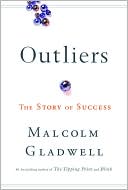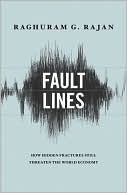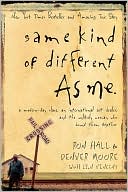With These Hands: The Hidden World of Migrant Farmworkers Today
With These Hands documents the farm labor system through the presentation of a collection of voices—workers who labor in the fields, growers who manage the multi-billion dollar agricultural industry, contractors who link workers with growers, coyotes who smuggle people across the border, union organizers, lobbyists, physicians, workers' families in Mexico, farmworker children and others. The diversity of stories presents the world of migrant farmworkers as a complex social and economic...
Search in google:
"What makes this book so important is that it allows us to see into the lives of those who do the stoop labor to put that lovely salad on our tables. With These Hands is a unique and valuable documentary work that skillfully presents the voices of laborers and others, helping us to understand our connection to the world of America's farmworkers."—Studs Terkel Booknews Farm workers earn an average of $6,500 per year and commonly suffer abuses that would be inconceivable in other industries. Documents the farm labor system through the voices of farm workers, as well as growers, labor contractors, union organizers, government investigators, and teachers. Annotation c. by Book News, Inc., Portland, Or.
ForewordPreface: With These Hands1Farmworkers: I Earned That Name12Farmworkers: What Sort of Future Awaits Us?313Growers: Somebody on Earth Has Got to Do This Job584Contractors: Between Workers and Growers915Pasando al otro lado: The U.S./Mexico Border1216Slavery in the Fields1547When Main Street Looks Like Little Mexico1818Farmworker Politics: Some Measure of Protection2059Farmworker Unions: A Sense of Their Own Power24010Migrant Children: Tell Me What a Childhood Is27211Back Home: Mexican Ranchos298The Space Between These Hands323Acknowledgments327Index330
\ BooknewsFarm workers earn an average of $6,500 per year and commonly suffer abuses that would be inconceivable in other industries. Documents the farm labor system through the voices of farm workers, as well as growers, labor contractors, union organizers, government investigators, and teachers. Annotation c. by Book News, Inc., Portland, Or.\ \ \ \ \ Christopher D. CookRothenberg does an admirable job of gathering important human stories. It's just unclear what links he seeks to make between consumers and a food system that delivers bountiful, cheap produce through exploitation. \ — The Progressive\ \ \ David KusnetIf there is an implicit message to this worthwhile survey. ..it is that somehow [migrant farm workers'] isolation must end. . . .[T]his effort will not be easy. -- New York Times Book Review\ \ \ \ \ Kirkus ReviewsYou'll never again take the produce on your supermarket shelf for granted after reading this illuminating account. At this point, the incredible shrinking paycheck has become a fact of the American worker's life. Just how little progress some of America's most disenfranchised have made since Civil War days, however, comes poignantly clear in this ably written chronicle of the 700,000 migrant workers who sometimes literally kill themselves to bring food to our tables. The book is comprised of real people talking, interspersed with Rothenberg's statistics and analysis. Although the author might have attacked his topic with an agenda, he was an outreach worker and paralegal for a federally funded legal-services program that represented farmworkers, he instead lets both sides speak. All concerned are remarkably candid, even those who regularly break the law. (Pseudonyms are used.) Contractors, for instance, speak of luring employees to work with drugs, loaning money at inflated rates of interest, and witholding tax and Social Security payments. 'Breaking the law is the only way you can make decent money," says Manuel Gomez, a contractor who finds workers for California growers. He records only some of his workers' hours and pay on the computer, then pockets the money he might otherwise have paid in Social Security or taxes. 'The truth is the worker hardly notices,' he concludes, noting most of them are illegal aliens. 'They don't even use real Social Security numbers, so we're not stealing from the workers. We're just stealing from the government. I don't see it as all that bad.' Altogether, Rothenberg interviews more than 250 people, including workers and their families, border patrolmen,political lobbyists, union organizers, coyotes who smuggle workers across the border, doctors who care for farmworkers, and growers. A fascinating portrait of an invisible class and an evocative mandate for social change.\ \








